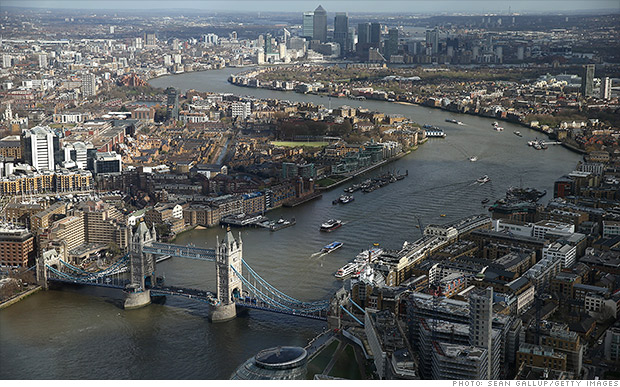Google’s plan is to start small: their cute little cars will have a top speed of 25mph, whizzing around the streets of southern California, more likely to be hit by a driver in a real car than they are to hit each other, you or an inanimate object. But make no mistake: the scale of Google’s globe-changing ambition is revealed in this project.
Because this isn’t about changing car ownership: it’s about eradicating it. No wonder Google has built its own vehicles – why would Ford or any other motor maker want to sign up to a project that will see fewer cars in any country, because they’re always in use. These aren’t driverless cars; they’re driverless taxis, perpetually in motion and powered by Google’s detailed knowledge of traffic flow, its carefully analysed sense of demand and the knowledge that even on a quiet residential street, people need to get places. Tap a button on your smartphone and you’ll find that the car you need is not minutes away, but yards. It’s worth noting that Google has already invested heavily in Uber, a cab firm that does away with a central office, albeit not yet the driver. It's the ultimate just-in-time delivery system.
In the UK, Milton Keynes is already pledged to start a driverless cars trial by 2017, little pods taking people from the station to the town centre, like a monorail without the rail. With carefully mapped roads and an array of sensors, these will be far safer than the risks posed by fallible human beings behind the wheels of rickety old bangers. Will driverless cars kill people? Inevitably – but that scandal will be precious little compared to the daily scandal of the deaths on roads today. Ditto the risks of hacking in to the system. Legislators and corporations must go slowly, but good news travels fast.
Google’s co-founder, Sergey Brin, emphasised the benefits to the old and the poor: “There are many people underserved by transportation today (the elderly, a lack of cabs and buses in some places). Look at people too young, old or disabled who can’t get around. It’s an issue and a real challenge for them.” He’s right to do so, but like the web the driverless car will be a great leveller. It will benefit us all, and it will do so in our lifetime. A new generation will grow up thinking the steering wheel is what drives a racing car, used by hobbyists because it’s fun, rather than a tedious necessity in urban traffic.
My expectation is that we’ll see fleets of driverless cars, different levels of comfort at different prices, paid for as an annual subscription, with advertising subsidising some fares. Google, after all is an advertising company. It’s got the maps, and if you’re happy to let it know those ads will suggest you’re passing a great place for dinner. Pay a bit more, maybe they won’t be there at all.
Will this be for everyone? No. It’s a long time before driven cars are banned from our streets: but driverless lanes should come as no surprise. In such circumstances these cars will be closer together, more efficient, cutting commuting time and congestion. Like Google ‘reading’ your emails in Gmail, the utility will outweigh any perceived disadvantages. It’s a brand people trust, even though some have legitimate privacy concerns.
It changes, too, even the biggest infrastructure projects: HS2 may go very fast, but so can cars and these ones will pick you up from where you are and take you where you need to be, slashing total travelling time.
The driverless car - and the driverless lorry for freight – offer us a chance to reclaim both the streets and the steering wheel. Driving should be fun – but we all have better things to do than sit in traffic.























